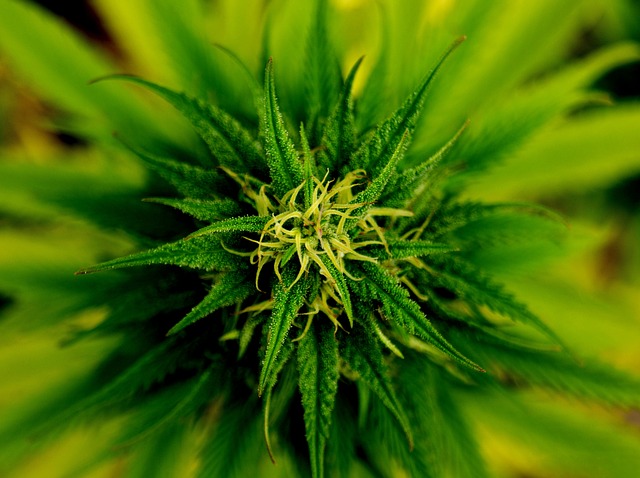Medical marijuana is now legal in 33 states and Washington D.C. Recreational marijuana is legal in 11 states and Washington D.C. And more than 37 million Americans use marijuana. Without safeguards, marijuana legalization creates large public health risks, writes Rosalie Liccardo Pacula for Stat News.
States benefit significantly from legalizing marijuana by way of increased tax revenue. And, legalizing marijuana creates more jobs. Americans who use marijuana, in turn, don’t have to fear criminal prosecution in their states.
But, there are also considerable risks for Americans. Marijuana can be harmful. Like vitamin supplements, most marijuana products are unregulated, so drug safety is a serious issue. The Food and Drug Administration does not ensure their safety, unless they are prescribed. In fact the federal government still considers possession and use of marijuana products a crime.
States are left to oversee the safety of marijuana products. And, for the most part, they have neither the skills nor the resources to do so, even if they have the will. Lack of oversight can present serious problems.
Already, four states have recalled marijuana products found to be unsafe. They contained dangerous pesticides. We don’t know how many other marijuana products are unsafe.
People using marijuana legally in their states are increasingly ending up in hospital emergency rooms. Their ER visits have doubled. They may experience uncontrolled vomiting or acute psychosis. And, some develop vaping-related lung injuries, such as burns from butane hash oil.
Americans need greater protections in states where marijuana use is legal. One way to protect Americans from overuse of marijuana products would be for states to establish non-competitive markets, permitting the sale of marijuana only from government or non-profit agencies, rather than for-profit businesses.
States could then better guarantee the safety of marijuana products. States could control their marketing and promotion, reducing their overuse. Today, businesses selling marijuana products are focused on driving revenue and not on public health or safety.
States could also set stiff financial penalties on producers, dispensaries and companies that provide inaccurate information to people about marijuana products.
Given the cost involved, it’s unlikely that states will step in to ensure accurate labeling of marijuana products or that they are tested for safety, though states should. (States don’t generally do testing for vitamin supplements, even though several have been found to be unsafe.) States might, however, prevent the sale of high potency waxes and oils.
States could also require that marijuana dispensaries have someone on staff who can advise people accurately about products. New York, Connecticut and Minnesota require this.
Here’s more from Just Care:
- Exercise may be your best bet for bone health, not calcium or vitamin D supplements
- Older adults increasingly using marijuana products with some risk
- Don’t overlook marijuana-prescription drug interactions
- Five steps to get your affairs in order in case of emergency
- Avoid supplements with these 15 ingredients











Interesting that no links to supporting data were included.
…agreed. I’ve been using CBD for a while now (one of the states where not only it but recreational cannabis is legal so no more prescription needed (which required an expensive annual registration card, cost more than it does now, and was not covered by any medical insurance [it still isn’t, but not as much of a hit on the budget]).
Another benefit I found (at least for myself) is the relief for my arthritis (Osteo and Rheumatoid) from a single “gummy” chewable lasts about two to three days compared to having to pop pills every few hours.
The real reason for all the negative PR is Pharma doesn’t make a profit off of it which is why the FDA continues to keep it at a Schedule 1 status up there with truly dangerous and addictive substances like cocaine, opium, meth, and heroin.
All this “sky is falling” rubbish, yet they turn a blind eye to the many harmful ingredients often used in our food (much of which they actually approved), GMOs, antibiotic use in poultry and livestock, and the rollback of inspection (the latter which the current regime has been supporting).
…I agree that standards need to be set (hence why nationalised legalisation is important) however the deleterious (and sometimes dangerous) side effects of OTC and prescription medications for arthritis outweigh the risk of using CBD.
I now suffer from permanent tinnitus which was caused by prolonged use of Ibuprofen over many years to mitigate the pain and stiffness of my arthritis. Many prescription meds have serious side effects like nausea, digestion disorders, kidney disorders, addiction (particularly in the case of opioids) and a couple even mention “possible death”.
CBD Cannabis, when produced properly, not only doesn’t have any side effects (it doesn’t even get one “high”), nor is addictive, but also promotes better sleep and helps relieve nausea caused by other medications (which is why it is often used in conjunction with chemotherapy)